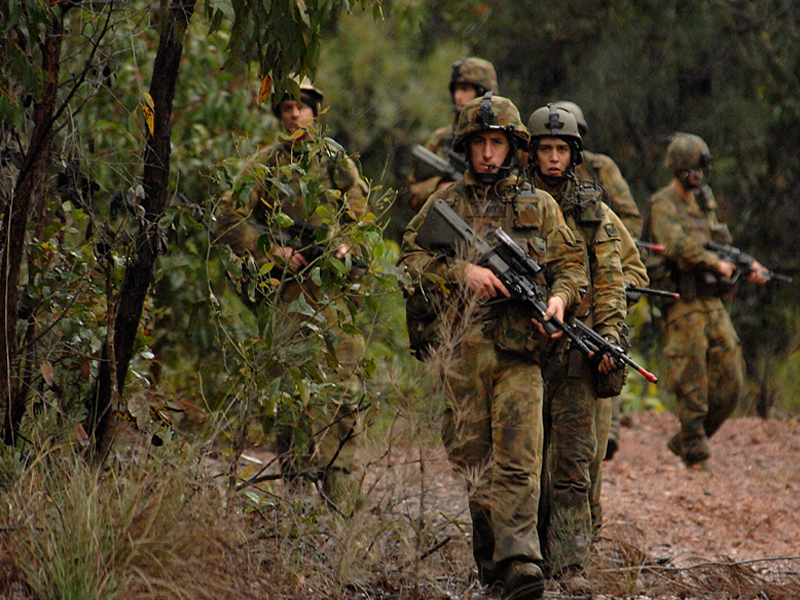War has long been seen as a tool for achieving political goals, but history has shown that not all wars can be won. The Vietnam War remains one of the most profound examples of a conflict where superior military strength did not guarantee victory. Despite technological advancements, vast resources, and military dominance, the United States failed to achieve its objectives. The lessons from Vietnam remain relevant today, explaining why some wars become unwinnable and what nations must consider before engaging in prolonged conflicts.
- The Limits of Military Superiority
One of the biggest takeaways from the Vietnam War is that sheer military power does not always translate to success. The U.S. had advanced weaponry, air superiority, and a highly trained military force, yet it struggled to defeat the North Vietnamese Army (NVA) and the Viet Cong. Guerrilla warfare, knowledge of the terrain, and the tireless commitment of local fighters made conventional warfare ineffective. This lesson has been echoed in later conflicts, including Afghanistan and Iraq, where insurgent tactics have neutralized technological advantages.
- The Role of Public Opinion in War
No war exists in isolation from public sentiment. In the early years of the Vietnam War, the U.S. government believed that strong military action would lead to a swift victory. However, as the war dragged on, media coverage exposed the brutality of the conflict, sparking widespread protests and growing opposition at home. Public outcry eventually pressured political leaders to withdraw, highlighting how domestic support is important for sustaining military campaigns. Today, governments must carefully manage both military operations and public perception to avoid a similar collapse of support.
- The Danger of Underestimating the Enemy
A recurring mistake in unwinnable wars is the underestimation of the opponent. In Vietnam, U.S. officials misjudged the resilience and determination of the North Vietnamese. They assumed that superior firepower would force the enemy to surrender, failing to recognize that the Vietnamese saw the war as a fight for national survival. When an enemy is driven by ideology, nationalism, or existential threat, conventional military strategies often prove ineffective.
- The Cost of Fighting Without Clear Objectives
One of the fundamental problems with the Vietnam War was the lack of a clear, achievable objective. While the stated goal was to prevent the spread of communism in Southeast Asia, there was no defined endgame. Wars without clear exit strategies or measurable success criteria tend to drag on indefinitely, consuming resources and lives without resolution. Modern conflicts, such as those in the Middle East, have shown similar patterns, reinforcing the importance of having a concrete strategy before engaging in war.
- Winning Hearts and Minds is as Important as Winning Battles
Military victories mean little if they do not translate into political stability. In Vietnam, the U.S. struggled to gain the local population’s trust. Corruption within the South Vietnamese government, indiscriminate bombing campaigns, and civilian casualties turned many locals against American forces. Winning a war requires more than defeating an enemy; it requires securing the long-term support of the people. This lesson has been repeatedly ignored in subsequent wars, often leading to prolonged instability.
- The Psychological and Human Toll of Prolonged War
Another critical lesson from Vietnam is the long-term psychological impact on soldiers and civilians. Thousands of American veterans returned home with PTSD, while millions of Vietnamese people suffered from displacement, loss, and destruction. The scars of war linger for generations, affecting national morale and trust in leadership. Any military intervention must consider the long-term consequences on soldiers and civilian populations who bear the brunt of prolonged conflict.
- Diplomacy is Often the Only Path to Resolution
Despite years of combat, the Vietnam War ultimately ended not with a decisive military victory but with negotiations. The Paris Peace Accords of 1973 marked the beginning of the U.S. withdrawal, proving that diplomacy, rather than force, was the key to ending the conflict. This pattern has repeated throughout history—many unwinnable wars eventually conclude with political settlements rather than outright victory. Prioritizing diplomacy early can save lives, resources, and international credibility.
Conclusion
The Vietnam War serves as a powerful reminder that not all conflicts can be won through military means alone. Superior weaponry, vast resources, and determined leadership cannot overcome deep-rooted political, cultural, and ideological resistance. Nations must learn from history, carefully weighing the costs of war, considering the human and financial toll, and prioritizing diplomacy over prolonged conflict. The lessons of Vietnam remain more relevant than ever, guiding leaders toward smarter, more sustainable approaches to global conflicts.


